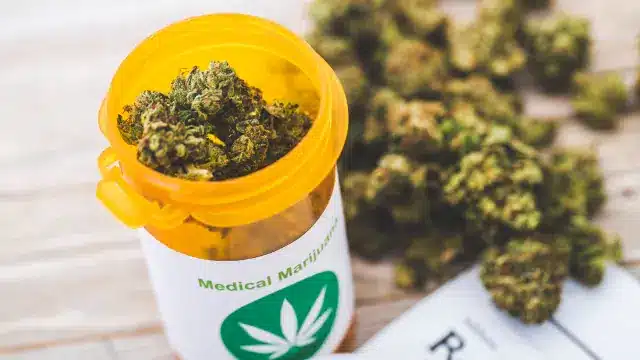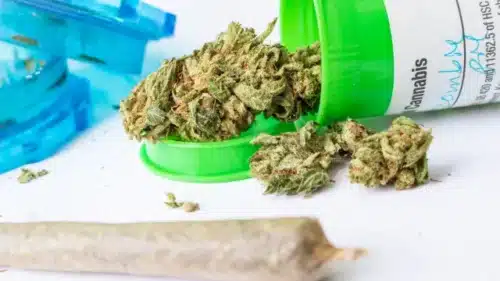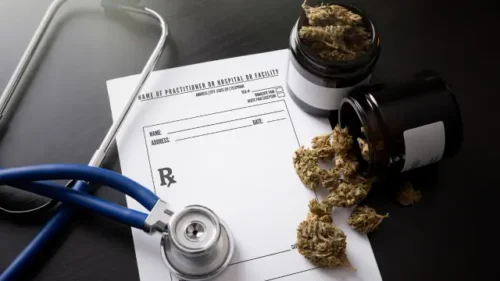
Medical Marijuana: 5 Things to Know Before Taking It
The use of medical marijuana has become a widely debated topic in recent years, with many people advocating for its legalization and others raising concerns about its potential risks and side effects. Despite the controversy, medical marijuana has been approved for use in several states to treat various medical conditions, including chronic pain, anxiety, and nausea.
If you’re considering using medical marijuana, it’s important to clearly understand what it is, how it works, and what potential risks and benefits it may offer. Below, we will explore the things you should know before taking it. By understanding the basics, you can decide whether medical marijuana is the right treatment option.
1. Usage of Medical Marijuana
Medical marijuana is becoming increasingly popular for many reasons. People use it for all sorts of issues like to ease chronic pain caused by arthritis or multiple sclerosis. Some patients undergoing chemotherapy have found it helpful in reducing nausea and vomiting, and it can even help increase appetite for those suffering from wasting syndrome.
There’s also evidence that it can help reduce the frequency and extremity of seizures in some patients with epilepsy, especially children. But before you start using it, it’s important to talk to a healthcare professional to ensure it’s right for you.
Cannabidiol – a compound found in marijuana – is relatively safe and is the most versatile therapeutic found anywhere. So, rest assured that you can use CBD oil and pain relief without worrying about any drawbacks. If you’re willing to find out more, exploring www.amedicanna.com will prove worthwhile.
2. How Does It Work
You might be wondering how medical marijuana works once you ingest it. You’ll find that it’s an interesting process. The chemicals in marijuana interact with certain parts of your cells known as receptors, which are found in your brain and immune system. Scientists have identified these receptors as cannabinoid receptor cells, which react to the active ingredients in marijuana, known as cannabinoids.
When these cannabinoids bind to receptor cells, they can produce various effects throughout the body. Still, exactly how the drug affects these receptors is not fully understood.
Although cannabis has been used for medicinal purposes for a long time, scientists are still trying to figure out how it works. They need to do more research, especially extensive studies, before they can say for sure. And unfortunately, most of the studies done haven’t met those standards. Because products vary in strength, doses are difficult to measure.
3. Other Drug Interactions
Did you know that medical marijuana can interact with other medications you might be taking? That’s right – it’s not something you can take without considering the possible consequences. If you’re already taking prescription drugs or over-the-counter medications, it’s important to talk to a professional before using medical marijuana.
That’s because the active ingredients in marijuana can sometimes interfere with other drugs you’re taking, potentially leading to some unwanted side effects. A healthcare expert can help you determine if there are any interactions you need to be aware of and how to manage them properly. So, before using medical marijuana, have an open conversation with your doctor to ensure it’s a safe and good choice.
4. Legal Standing
The legal status of medical marijuana can be a little confusing. While it might be legal in some states, it’s important to understand that it’s still illegal in others. So, before you start using medical marijuana, you’ve got to check your local laws to ensure you’re not breaking any rules.
In 1996, California took the first step in legalizing medical marijuanas, and since then, 36 states in the United States have followed suit. However, there’s still some confusion because the federal government still considers marijuana illegal.
That means that while it might be legal in your state, you could still get in trouble with federal law enforcement if you’re not careful. And it’s not just law enforcement that you need to worry about. Even the Transportation Security Administration has strict rules around medical marijuana. So make sure you know what you can and can’t do before you travel with it.
5. Addiction Potential
Another important consideration regarding medical marijuana is its potential for addiction. While it’s generally considered safe, some people may become addicted to it. Especially if they have a history of substance abuse. Talking to your healthcare provider about any concerns is important, especially if you’re at risk for addiction.
While more research is needed, doctors do know that people who use marijuana for recreational purposes are likely to develop substance abuse problems. Dependence is a common issue; if you’re addicted, stopping usage can lead to withdrawal symptoms such as irritability, insomnia, and decreased appetite.
If you’re thinking about stopping use, it’s important to discuss this with your doctor so that they can help you manage any potential withdrawal symptoms.
Read More: Best CBD Capsules: 5 Reasons To Check Lab Test Results
Conclusion
As you can see, medical marijuana is a complex and fascinating topic that continues to evolve. While it effectively treats various conditions, weighing the potential risks before deciding if it’s right for you is important.
Also, stay up to date on the legal status of medical marijuana in your area. And check for any potential interactions with other medications you may be taking. And, of course, always consult with your healthcare provider before starting any new treatment.
With the right information and guidance, medical marijuana can be valuable in managing pain and improving overall well-being.



